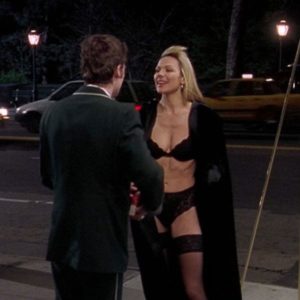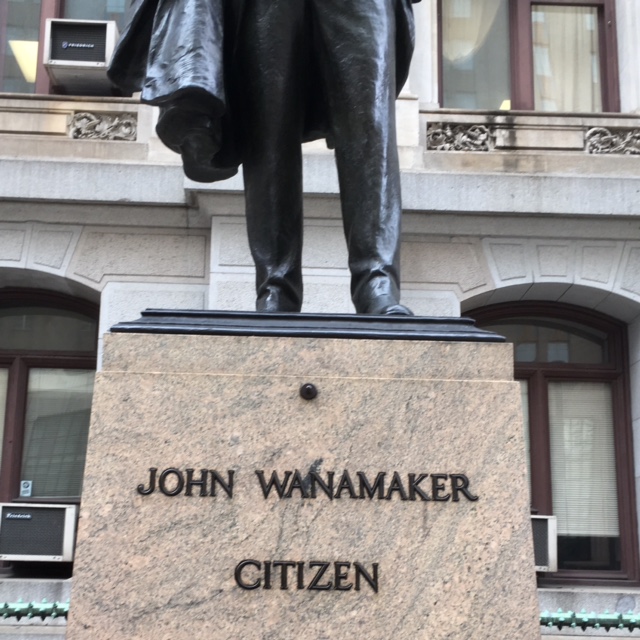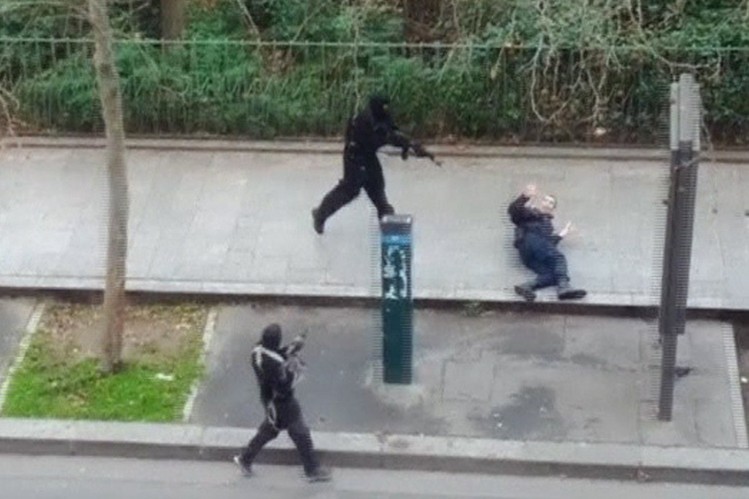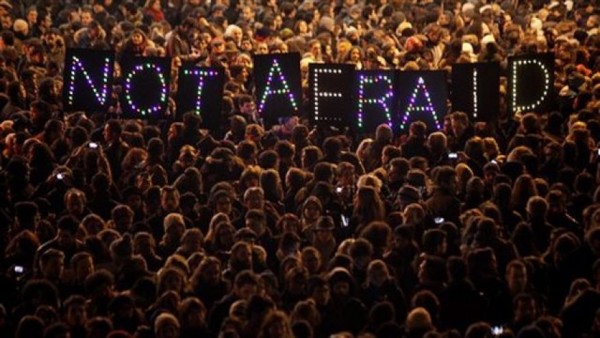In a short article this week, a philosophy professor wondered whether the risks of living today are so daunting that you need to pause before bringing another innocent child into the world.

As if I needed reminding, I’d just seen A World in Disarray with Condoleezza Rice, Tony Blair, Samantha Power and others arguing about why global stability seems to be a thing of the past. As if Syria, the Ukraine, the South China Sea and North Korea weren’t enough, it was also another week of politics, of Delaware-size pieces of Antarctica breaking off, of hearing about ISIS fighters slipping into the general population.
Is this a place to bring an innocent child? And if you’ve decided to do so, what (if anything) is your responsibility for exposing her to risks that may include the very destruction of the world you’ve brought her into?
I have an extended family member whose own experience of life has been so harsh that he has refused to marry (despite tremendous interest) or have a child. I have a life-long friend who is probably in the same situation, although we’ve never talked about it. So it’s not just the risks “out there” but also how you’ve experienced them yourself which sometimes answers the question.
The philosophy professor I mentioned above is Rivka Weinberg. She posted an article at quartz.com this week called “Is it Unethical to Have Kids in the Era of Climate Change?” Before trying to puzzle my way to an answer, I thought to myself we’ll all be done in by authoritarian leaders or cyber warfare long before we’ve killed our environment but I’d still been seized by her premise.
A year ago, Weinberg had written at length about the quandary.
In The Risk of a Lifetime, my book about the ethics that can guide our decisions about procreation, I argue that when we have children, we impose life’s risks upon them. Therefore, we ought to consider the nature of those risks in advance, in order to figure out whether they are fair to impose.
It’s where Weinberg began her analysis that probably caught my eye. When we decided to become parents and have a child, my first thoughts weren’t about the risks she’d be facing but The Gift she was going to be. (How do I appreciate the wonder of her arrival? How do I care for something so precious?) Focusing on the risks that we’d be asking her to shoulder never entered my mind at the time, though it’s harder to dodge the question now.
 As Emily grew up, my priority was wonder management until risk management reared its head–but not as a series of global threats. Instead, it was when I discovered one of her elementary school friends cutting off the heads of Barbie dolls in a room upstairs; when 5th grade girls with Netflix accounts found Sex in the City during a sleepover; and when middle school boys were grinding like gangstas in our kitchen. Not to dwell on it, but there is almost nothing more shocking to a girl-power dad than walking in on your 10-year old when she’s somehow watching Samantha on her TV. That cat can never be put back in the bag.
As Emily grew up, my priority was wonder management until risk management reared its head–but not as a series of global threats. Instead, it was when I discovered one of her elementary school friends cutting off the heads of Barbie dolls in a room upstairs; when 5th grade girls with Netflix accounts found Sex in the City during a sleepover; and when middle school boys were grinding like gangstas in our kitchen. Not to dwell on it, but there is almost nothing more shocking to a girl-power dad than walking in on your 10-year old when she’s somehow watching Samantha on her TV. That cat can never be put back in the bag.
So I tried to fend off risks that she was facing closer to home, but what did I do—what should any of us do—to make it fair to impose the rest of the world’s risks on an innocent child? Beyond the bounds of family life, what is any parent obliged to do?
As I thought about it, bringing a child into this world only becomes fair when parents confront its terrible risks along with their children. In other words, it’s an obligation that extends across generations. You assume this responsibility with a hope that is durable enough to face those risks while you actively work to reduce them. You do it so your child never has the burden of facing those risks alone.
A writer named Jurgen Moltmann has spent a lifetime of scholarship describing the kind of hope that is necessary to drive an obligation as big as that.
He was a young man from Hamburg when his activism made him a German POW during World War II. Suffering during his imprisonment and feeling responsible as a German for the War’s atrocities left him feeling desolate, with little will to live, when the War was over. Moltmann realized that he could only go on if his hope in the world was strong enough to confront the magnitude of what he’d experienced—that is, where hope and suffering reinforce one another, so your hope always knows what it’s up against and never becomes false.
This hope challenges you to respond to the world’s suffering as best you can and (in Moltmann’s words) to “be a combatant” in the battle “to overcome death with life, violence with peace, and hate with love.” In other words, your hope is also reinforced by your actions. You have work to do when you see the world as it really is but believe in it enough to refuse to be crushed by it.
Of course, work that you do to combat a risk-laden world also helps you discharge your responsibility for bringing an innocent child into it. Like Moltmann, you fight for your hope in the worth of the world, while also fighting for hers.
Sometimes we trick ourselves into believing that we’re safe from the suffering and the risks that are everywhere around us. Or because the enormity of it is too much to contemplate, we put it out of our minds altogether or lose ourselves in distraction to avoid having to face it. But bringing an innocent child into the world changes everything because (in fairness) it’s not just about you any more.
Your child becomes an expression of your hope that the world is worth your engagement while you fight to reduce its terrible risks. It’s an obligation that’s everyone’s job, but even more so when you become a parent.






